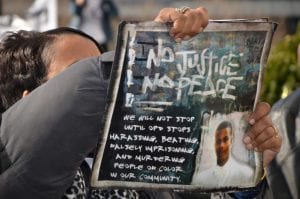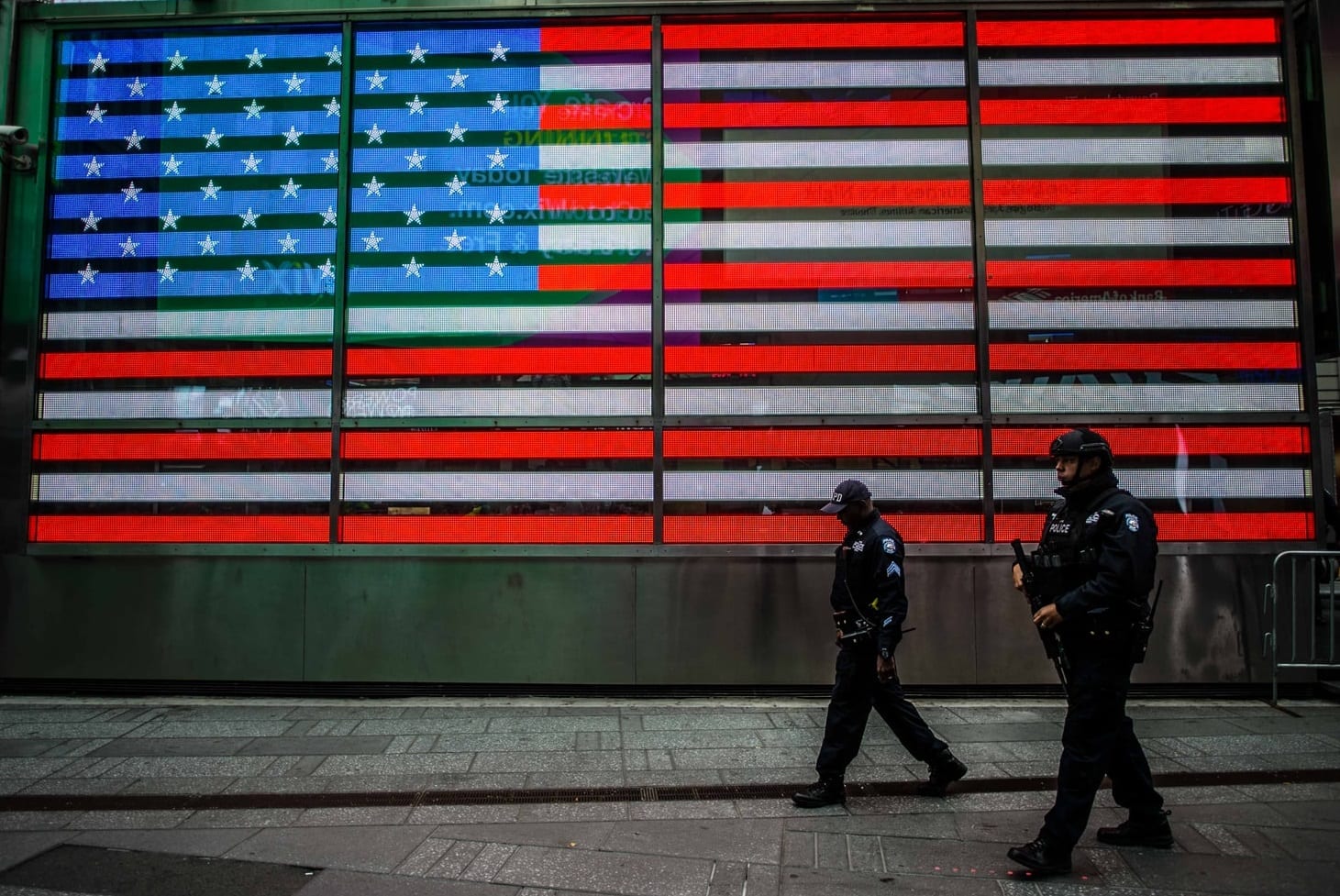Some cash-strapped municipalities can’t afford law enforcement. But is having no police such a bad thing? Not when they’re corrupt “bad apples.”
Who doesn’t consider their local police department to be a standard feature of modern municipal civilization, much like the water treatment plant and garbage collection, that keeps us safe but which mostly exists in the background, taken for granted until needed? Yet these services cost money, and when the economy takes a hit, and the tax base crumbles, some communities have opted to have no police protection in recent years.
After the timber industry faltered, residents of Josephine County, Oregon, decided they’d rather have no police than raise their astoundingly low property tax rates in 2016. In 2018, all four members of tiny Blandford, Massachusetts, police department resigned, citing unsafe equipment and low pay, while the town of Randolph, Vermont, with only one remaining officer, considered disbanding the department. This year, collapsing income from the coal industry caused Martin County, Kentucky, to suspend police services as the sheriff warned residents to “lock your doors, load your guns and get a biting, barking dog.”
However, are municipalities less safe when they forego police protection? It depends. A flood of stories in the news recently suggest that it might be safer to have no police than to have these bad apples patrolling in our towns:
New York officer Daniel Pantaleo, who choked Eric Garner (an unarmed man suspected of selling single cigarettes without a tax stamp) as he pleaded for air, faced only the loss of his job. Even this minimal consequence for taking a man’s life deeply angered the police community, since the overwhelming majority of NYPD employees charged with misconduct typically keep their jobs and receive little or no discipline.
Police in Portland, Oregon, used Photoshop to “erase” facial tattoos from a suspect’s mugshot to make him look more like a man who robbed a bank, because they were not sure that the bank tellers would pick their guy out of a photo lineup. No police or FBI officials disclosed the retouching; a defense lawyer spotted it on his own.
How about the officers in San Antonio, TX, who allegedly yanked down a woman’s shorts, reached into her vagina, and pulled out her tampon to check for drugs all up in there, without a warrant, and right on a city street, in front of God and everybody?
Then there are the cops like Amber Guyger and Aaron York Dean, poorly trained newbies who fire before thinking, killing innocent people in the “comfort” of their own homes. No police should be given a badge before they know not to do that.
In 2015, police near Denver chased a man suspected of shoplifting a shirt and two belts from Wal*Mart, who escaped by barricading himself in a nearby home. A police SWAT team took aim at the house with high-powered rifles, chemicals, flash-bang grenades, armored vehicles, and breaching rams, rendering Leo Lech’s house structurally and legally uninhabitable. Last month, an appeals court ruled that the homeowner wasn’t owed compensation, since police were protecting the public when they destroyed his property.
Last August, police arrived from all over Massachusetts to protect a white supremacist “Straight Pride March” from a much larger crowd of counter-protesters. And by “protect from,” I mean “actively attack.” Police pepper-sprayed counter-protesters, even ones within police-established barricades, punching peacefully seated people and dragging them away even once they had begun to disperse, and particularly targeted medics who were assisting the injured. This should come as no surprise, as white supremacists have been infiltrating police forces for some time.

The list goes on and on. What can we do?
Although violent crime has been on the decline for the past quarter century, President Trump characterizes America’s cities as war zones and recently announced plans for a “surge,” echoing George W. Bush’s 2007 military strategy in Iraq. One wonders if ramping up a white nationalist police force is better or worse than having no police at all, especially in blue-state areas where popular values clash with those of the President and his supporters.
One possible solution is for volunteers to watch the police. In 1966, the Black Panthers were born when six black men in Oakland, California, formed a group to curb police brutality against their community. They also became a social welfare organization providing free groceries and hot breakfasts for kids, because police violence isn’t the only threat to America’s poor, people of color, recent immigrants, GLBT+ people, and other marginalized communities. There’s an echo of the Black Panthers in today’s John Brown Gun Club and other mutual aid societies.
We can also watch out for each other, as they do in Marshall, Alaska, another town with no police of its own. Alaskan troopers have to cover a lot of ground with little in the way of funding, so tightly-knit citizens have started making arrests themselves, issuing community lockdowns when there’s a drunk, enraged shooter in town, and fighting off assaults on their neighbors.
Good police must also step up, speak out, and toss the bad apples out of their departments and their brotherhood. No police organization should be so insular as to shield bad cops instead of protecting the communities they pledge to serve.
In the end, if the only choice is between bad police and no police, perhaps no police is the better choice. Unfortunately, that may only be possible where we have solid communities deeply committed to each other, a condition torn apart by the largely capitalist demand for a mobile workforce that can easily uproot itself to move to “where the jobs are.” In the villages and counties where capitalism has run its course, where coal and lumber mills disappeared along with their tax contributions, maybe we can build places like that again.
Related: Who Can Be Trusted to Do Police Work?


Join the conversation!